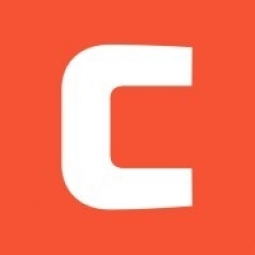Download PDF
Waiākea’s Supply Chain Transformation for Sustainable Growth
Technology Category
- Functional Applications - Transportation Management Systems (TMS)
- Sensors - Utility Meters
Applicable Industries
- Retail
- Transportation
Applicable Functions
- Logistics & Transportation
- Warehouse & Inventory Management
Use Cases
- Intelligent Urban Water Supply Management
- Leakage & Flood Monitoring
The Challenge
Waiākea, a premium water brand, was facing challenges with its linehaul transportation, which was primarily less-than-truckload (LTL). The LTL carriers were less flexible, took longer to book, and the rates penalized the water for its weight. This was not only time-consuming but also costly for Waiākea. The company needed to convert their LTL shipments to full truckload while retaining their CarbonNeutral status. The growth of the company also meant that a network of warehouses had to be designed and built to serve the entire country. Waiākea wanted its warehouses to be within a two-day transit of each other, and they needed to be able to ship quickly to local distributors that were stocking shelves at retail locations, typically within five miles of their own locations.
About The Customer
Waiākea is a premium water brand that sources its water from a spring at the foot of the Mauna Loa volcano. The water naturally flows through thousands of feet of porous volcanic rock before emerging near the town of Hilo. Waiākea collects a tiny fraction of the water and bottles it in a nearby plant staffed by local workers. The bottles are made from 100% recycled polyethylene terephtalate (RPET), a sustainable material that Waiākea introduced to the premium water industry. Waiākea supports a number of sustainability initiatives, from reforestation in Hawaii to fleet electrification across the U.S. Waiākea was the first bottled water to be certified CarbonNeutral.
The Solution
Waiākea leveraged Convoy’s freight network to secure full truckload capacity. Convoy’s batching capabilities reduced empty miles, cutting down on unnecessary carbon waste. This helped Waiākea maintain its CarbonNeutral certification for both its product and business. A partnership with a parcel integrator’s carbon neutral program handled Waiākea’s direct-to-consumer shipments. LTL lanes were optimized to put multiple shipments on the same truck, and some over-the-road truckload shipments from the West Coast to the East Coast were now intermodal. Waiākea gradually gave Convoy more and more freight as its business grew and it converted LTL shipments to full truckload. Waiākea started by giving Convoy 10 loads per month; now it’s 95 to 100 loads per month, representing about 80% of Waiākea’s wholesale business.
Operational Impact
Quantitative Benefit
Related Case Studies.

Case Study
Airport SCADA Systems Improve Service Levels
Modern airports are one of the busiest environments on Earth and rely on process automation equipment to ensure service operators achieve their KPIs. Increasingly airport SCADA systems are being used to control all aspects of the operation and associated facilities. This is because unplanned system downtime can cost dearly, both in terms of reduced revenues and the associated loss of customer satisfaction due to inevitable travel inconvenience and disruption.

Case Study
IoT-based Fleet Intelligence Innovation
Speed to market is precious for DRVR, a rapidly growing start-up company. With a business model dependent on reliable mobile data, managers were spending their lives trying to negotiate data roaming deals with mobile network operators in different countries. And, even then, service quality was a constant concern.

Case Study
Digitize Railway with Deutsche Bahn
To reduce maintenance costs and delay-causing failures for Deutsche Bahn. They need manual measurements by a position measurement system based on custom-made MEMS sensor clusters, which allow autonomous and continuous monitoring with wireless data transmission and long battery. They were looking for data pre-processing solution in the sensor and machine learning algorithms in the cloud so as to detect critical wear.

Case Study
Cold Chain Transportation and Refrigerated Fleet Management System
1) Create a digital connected transportation solution to retrofit cold chain trailers with real-time tracking and controls. 2) Prevent multi-million dollar losses due to theft or spoilage. 3) Deliver a digital chain-of-custody solution for door to door load monitoring and security. 4) Provide a trusted multi-fleet solution in a single application with granular data and access controls.

Case Study
Improving Production Line Efficiency with Ethernet Micro RTU Controller
Moxa was asked to provide a connectivity solution for one of the world's leading cosmetics companies. This multinational corporation, with retail presence in 130 countries, 23 global braches, and over 66,000 employees, sought to improve the efficiency of their production process by migrating from manual monitoring to an automatic productivity monitoring system. The production line was being monitored by ABB Real-TPI, a factory information system that offers data collection and analysis to improve plant efficiency. Due to software limitations, the customer needed an OPC server and a corresponding I/O solution to collect data from additional sensor devices for the Real-TPI system. The goal is to enable the factory information system to more thoroughly collect data from every corner of the production line. This will improve its ability to measure Overall Equipment Effectiveness (OEE) and translate into increased production efficiencies. System Requirements • Instant status updates while still consuming minimal bandwidth to relieve strain on limited factory networks • Interoperable with ABB Real-TPI • Small form factor appropriate for deployment where space is scarce • Remote software management and configuration to simplify operations






